Blog
Can Acupuncture Boost My Immune System?

Acupuncture is an alternative medical practice. It was first documented in China around 100 BCE, although evidence of its use extends to 600 BCE. The procedure is based on the manipulation of ‘life energy’ or ‘Chi’, which is done by inserting extremely thin needles into the skin at particular points called acupuncture points. Acupuncture facilitates healing through the balancing of life energy. Chi flows throughout the body in a system of 12 channels (or meridians) that correspond to the body’s organs and systems. The manipulation of this energy can open blocked channels and allow the body’s healing force to attend to diseased areas. From a more western point of view, acupuncture can be used to manipulate or stimulate specific organs, systems, and bodily functions through the stimulation of particular nerve-rich areas on the skin.
Although it is considered as an alternative medicine, acupuncture has become relatively common in western culture, and especially since 1998, when the National Institutes for Health (NIH) issued a consensus statement on acupuncture and its practical use in health treatment. The World Health Organisation (WHO) currently recognizes a total of 361 acupuncture points on the human body and lists a total of 28 diseases or conditions that are proven to benefit from acupuncture treatment. Today, in western society, acupuncture is used to alleviate pain, nausea, and vomiting—especially in cancer patients—arthritis, stress, and tension (an associated disorder), and to treat respiratory diseases. Source: Mayo Clinic.
Acupuncture and Immunity
Can acupuncture boost your immune system? The answer is not surprising: yes, it can! According to Acupuncture Massage College, in some cases, acupuncture therapy is prescribed for immune deficiency disorders such as allergies, autoimmune diseases, chronic fatigue, psoriasis, and cancer. Since inflammation is the natural pathological progress of many diseases, many argue that the strength of acupuncture in boosting immune function lies in its ability to reduce inflammation. Studies have also shown that acupuncture can affect a rise in immune interferon levels. Interferons are the chemical messengers used by the immune system to communicate between cells.
The acupuncture point named Stomach 36 (ST36) is well known for its immune-boosting effects. Stimulation of this point (located just below the kneecap on the outer part of the leg) is believed to regulate the activation of Natural Killer cells (NK cells) known for their ability to attack and kill cancer cells.
The human immune system consists of the white blood cells produced by bone marrow; antibodies made in the thymus and tonsils; and the spleen and the lymphatic system, which removes dead cells and materials from the system. These systems interact and communicate to coordinate the body’s defense system. First, white blood cells detect foreign particles in the body. In response, the body launches a defense in the form of fighter cells and antibodies. It keeps a record of infections, so future immune reactions are faster and more effective. If any of these aspects are weakened due to illness or bad lifestyle choices, our immune system is compromised.
Research and scientific evidence from clinical trials show that acupuncture can regulate immunity and promote anti-inflammatory effects. In one study, early stimulation of acupuncture point ST36 resulted in an increased concentration of the antibody SIgA, as well as T-lymphocytes in the intestinal mucosa. It resulted in lowered mortality due to sepsis.
In conjunction with moxibustion, acupuncture helped restore the balance between immune cell subsets during treatment of Crohn’s disease patients (Liang et al. 2015).
Additionally, prevention and early treatment of disease is a big part of TCM. Acupuncture is often used before the onset of an illness to boost immunity, thereby potentially bypassing disease altogether.
What to Expect from Acupuncture Treatment
Your first treatment with an acupuncturist may last for up to an hour. The acupuncturists will carefully evaluate your particular case and decide on the correct combination of acupuncture points to stimulate and the duration of the treatment. A total of 361 acupuncture points are located all over the human body, including the hands, feet, and ears, where points are more concentrated. Follow-up treatments tend to be shorter, typically between 20-30 minutes, and may be necessary depending on the specific case.
The skin is disinfected with alcohol before a very thin sterilized needle or disposable needle in inserted precisely at each specific acupuncture point. Once inserted, the acupuncturist may adjust the position of the needles, heat them, or even electrically energize them for an enhanced effect. Treatment is not painful or uncomfortable, although a slight prick may be felt on insertion, followed by tingling or warming around the site.
Acupuncturists typically train for about three years. They may specialize in additional TCM, such as herbology, to complement their practice. When performed by a licensed practitioner using disposable needles acupuncture is safe, and complications are unlikely.









